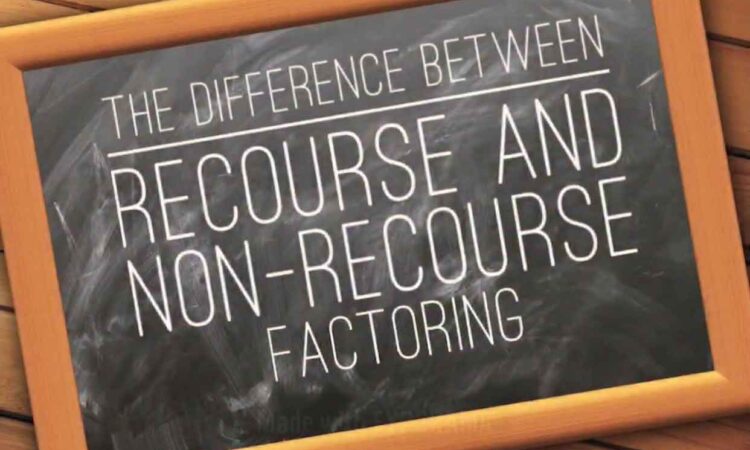Cash flow issues affect nearly every small business. To address them, there are numerous small business tools that allow for the influx of capital to cover the cash crunch, but don’t saddle the business with debt. One such tool is factoring. Within factoring, there are Recourse and Non-Recourse factoring arrangements. If you’re considering working capital loans in Milwaukee, WI, knowing the difference can help shape your overall business and cash flow strategies.
Recourse Factoring
Recourse factoring is an arrangement where the company that factors its invoices assumes responsibility to buy back any loans that end up being uncollected or not able to be collected. When the factor is calculated, it does not differentiate based on creditworthiness of any individual customer, but rather the entire sales ledger. Where the factoring company protects itself is by an agreement that stipulates that the company receiving the working capital loan in Milwaukee, WI, will assume responsibility for any uncollected loans, above and beyond any fees the factoring company levies on the entire slate of purchased invoices.
The vast majority of factors are of the Recourse variety as it helps the factoring company avoid any risk of unpaid invoices. The bulk of the risk is for the borrower, as they’re on the hook for any unpaid invoices. They also will assume the cost of any subsequent steps to get the delinquent customer to pay what they owe. Still, if you’re looking for a working capital line of credit in Milwaukee, WI, Recourse factoring might be a viable option.
That creates more risk for the borrower, but it also results in a less expensive overall cost of factoring. The trade-off is price versus risk. If a company has a slate of reliable customers, it might be worth getting Recourse factoring as the risk of a customer defaulting on invoices is low, but the borrower will still get the lower cost.
Non-Recourse Factoring
 A Non-Recourse factoring arrangement is also known as a “secured debt of collateral.” Specifically, the factoring process works the same with Recourse or Non-Recourse arrangements. What’s different is that the Non-Recourse factoring agreement ensures the borrower has no liability with any uncollected invoices. All the risk associated with debt collection is absorbed by the lender. That includes any follow-up via collection agencies or legally. Because of this risk, the transaction fee will usually be higher.
A Non-Recourse factoring arrangement is also known as a “secured debt of collateral.” Specifically, the factoring process works the same with Recourse or Non-Recourse arrangements. What’s different is that the Non-Recourse factoring agreement ensures the borrower has no liability with any uncollected invoices. All the risk associated with debt collection is absorbed by the lender. That includes any follow-up via collection agencies or legally. Because of this risk, the transaction fee will usually be higher.
The benefits to borrowers are two-fold. They get the cash they need to alleviate a crunch with zero risks if any of their customers do not pay. Non-Recourse factoring also works like credit insurance in the sense that the borrower gets access to the factoring money with no risk to themselves barring there is no fraud. If you’re looking for working capital for business in Milwaukee, WI, Non-Recourse factoring is almost a “no-brainer.”
Recourse and Non-Recourse factoring are two ways of allowing small business to get access to working capital loans in Milwaukee, WI. It’s more likely that Recourse factoring will be available to most small businesses, but if Non-Recourse factoring is an option, it’s worth the higher fees.
What are the pros and cons of recourse versus non-recourse factoring?
Recourse factoring will typically be less expensive than non-recourse factoring services. Additionally, non-recourse factoring plans may have specifications that dictate the credit risk lies with your company. So you may end up paying more, only to have the invoice amount recourse anyways. Non-recourse plans favor borrowers while recourse plans favor lenders. If your customers pay you reliably, it is probably smarter to choose a recourse plan. This way you will be paying less, without the risk of customer non-payment. Non-recourse plans provide an extra barrier of protection for your business, but this barrier of protection may be unnecessary if you already have credit monitoring procedures to minimize the risk of customer non-payment.

